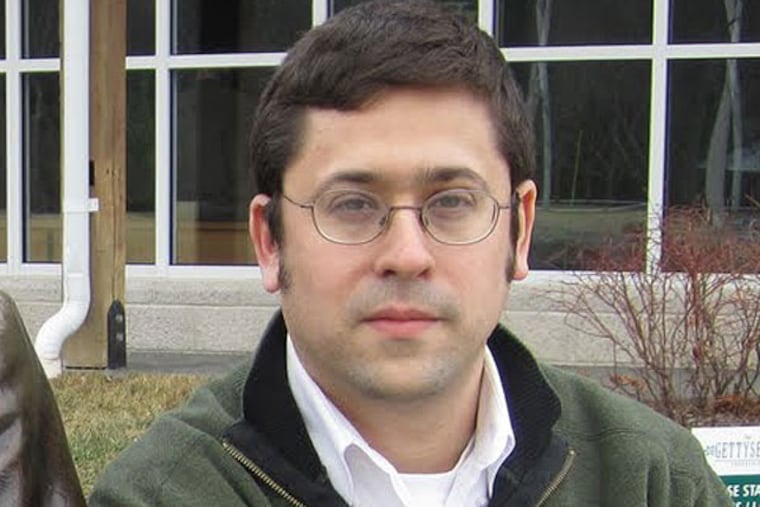Rare Phila. win - for a Whig!
PHILADELPHIA For the first time in 159 years, Philadelphians have elected a Whig to public office - specifically, putting a member of the Modern Whig Party into a spot as judge of elections in Northeast Philadelphia's 56th Ward, in the Rhawnhurst section.

PHILADELPHIA For the first time in 159 years, Philadelphians have elected a Whig to public office - specifically, putting a member of the Modern Whig Party into a spot as judge of elections in Northeast Philadelphia's 56th Ward, in the Rhawnhurst section.
Robert "Heshy" Bucholz, 39, a software engineer with four children and a fifth on the way, went door to door soliciting support from his neighbors and wound up garnering 36 votes, compared with 24 for his Democratic opponent, Loretta Probasco. As judge of elections, he'll be in charge of his neighborhood polling place for the next four years, beginning with the primary election in May.
The job pays $100 per Election Day, which amounts to less than $8 an hour to open the polls at 7 a.m. and keep things running smoothly until the doors close at 8 p.m.
Bucholz said he was moved to run by the state's new voter identification law, which is being challenged in the courts.
Not that he feels that strongly about the law itself, pro or con - he doesn't think the proposed photo ID requirement is particularly onerous; nor does he believe there's much evidence of the voter fraud it's supposed to discourage. But it bothered him, he said, that some election officials vowed not to enforce the law, even if it's upheld by the courts.
"Whatever the law is, we will follow it, or resign if we felt we couldn't," Bucholz told The Inquirer on Wednesday.
His wife, Dinah, a registered Republican, was elected inspector for the same voting division, the fifth division of the 56th Ward.
Bucholz, previously registered as independent, said he joined the Modern Whigs three years ago in response to the partisan gridlock in Washington. "One of the first tenets of the party is, it stands for pragmatism, working through the issues instead of staring each other down and refusing to deal with them," he said.
The Modern Whigs' national chairman, Andrew Evans, said the organization grew out of the disenchantment of military veterans returning from Iraq and Afghanistan and being frustrated by what they, too, saw in American politics - "the bickering, the inability to work together and collaborate."
The party, based in Washington, was officially founded in 2009 and now boasts 30,000 members nationwide, Evans said. One of its core principles, he said, is "working together to reach viable compromises."
Eric Foner, a Pulitzer Prize-winning author and professor of history at Columbia University, said the original Whigs thrived in British politics in the 1700s, favoring more authority for Parliament and less for the king.
In the United States, Foner said, the party grew out of opposition to President Andrew Jackson, seeking more power for Congress.
"It also had a positive ideology, favoring stimulus spending on infrastructure like roads and canals, schools, and high tariffs to protect American businesses from foreign competition," Foner said. "The Democrats were more laissez-faire."
Philadelphia elected three Whig mayors starting in 1844. The last was Robert T. Conrad, who served from 1854 to 1856. (He also had the backing of the Know-Nothings.) Four Whigs served as U.S. presidents. Even young Abraham Lincoln was a member, but the party fell apart over the slavery issue and went out of existence before the Civil War.
That was when the Republicans came along.
215-854-5885